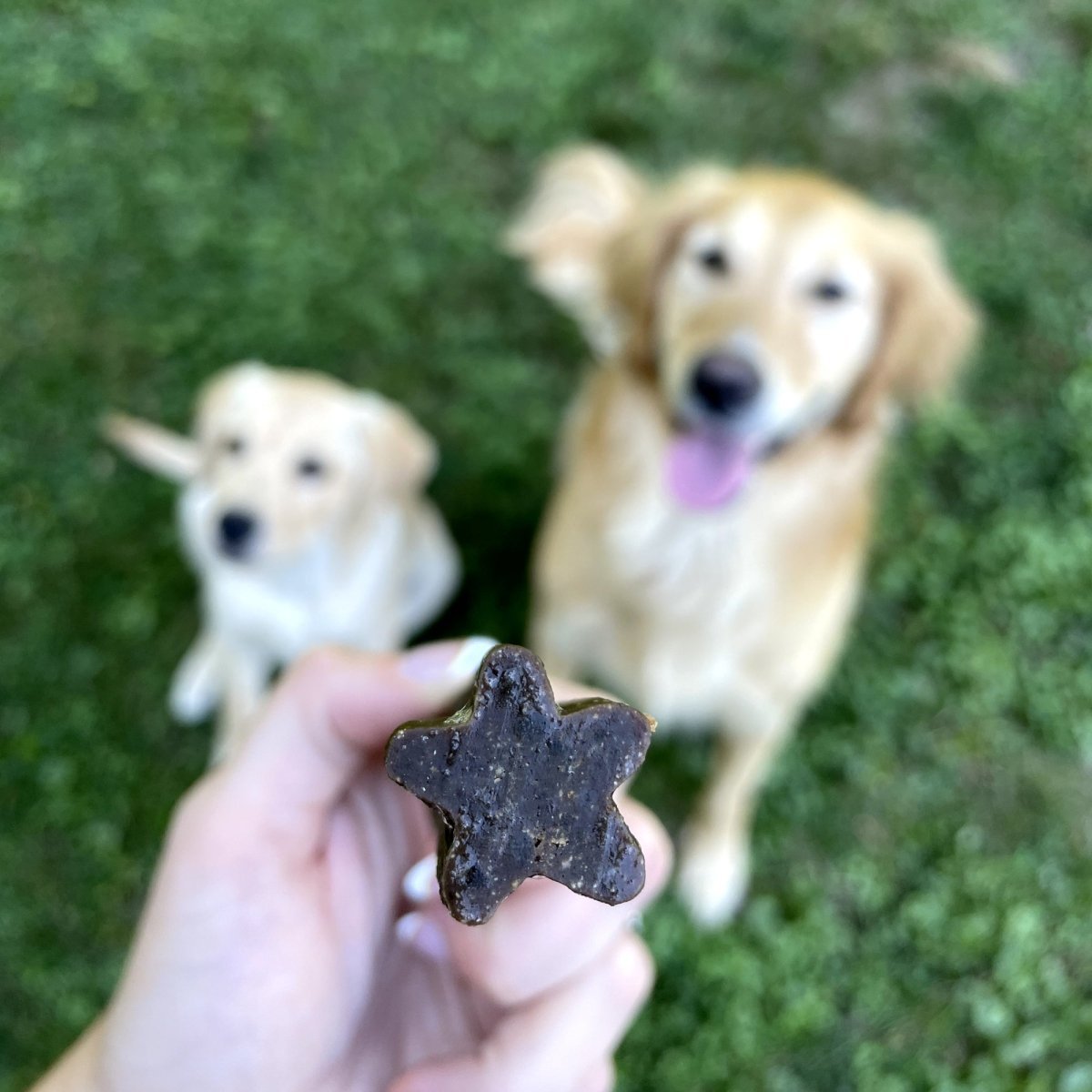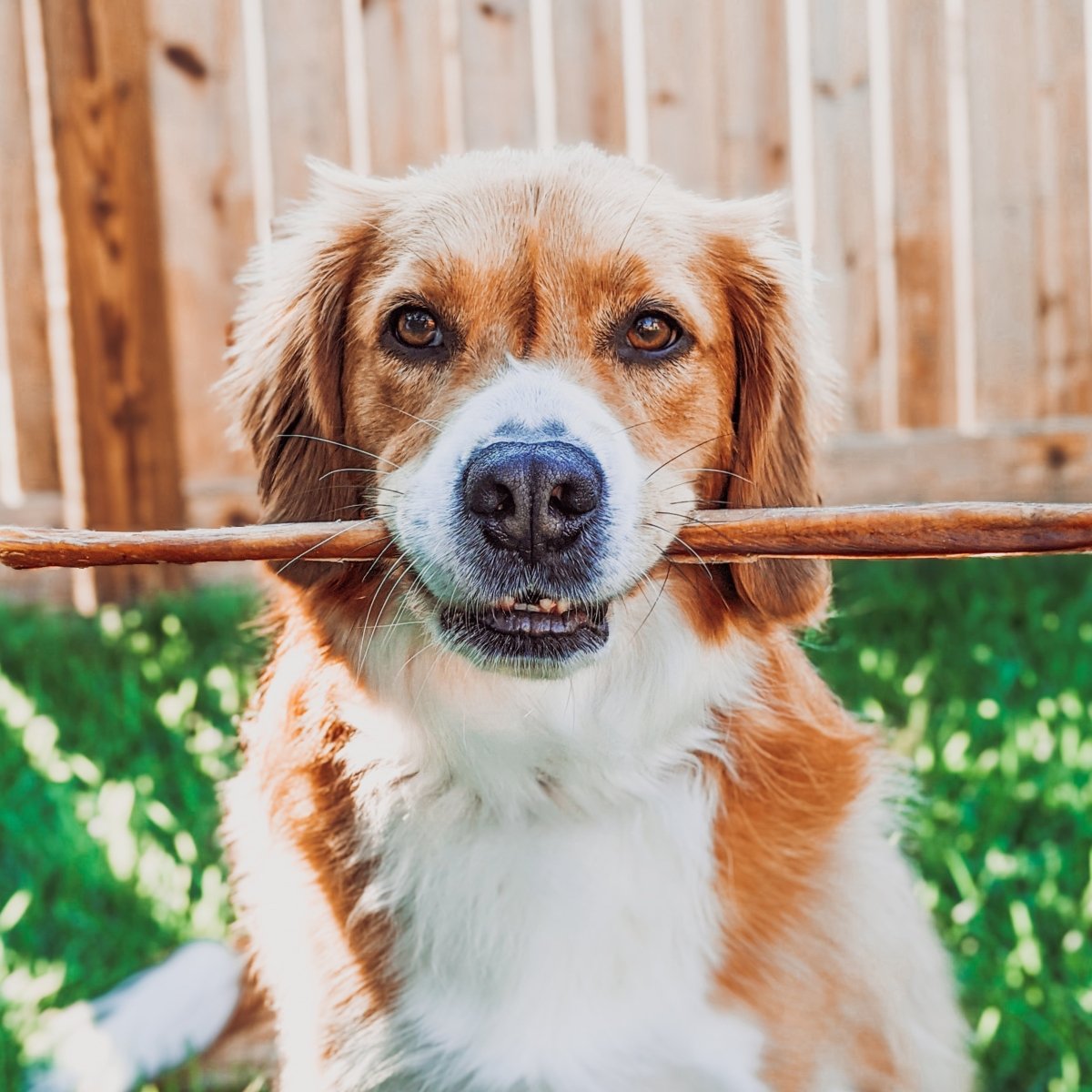
So your dog ate up the couch, cushions, pillows, and blankets. Not only is it frustrating to deal with, but you also worry about their personal health. Is there something better you could give them? Could bones be a healthy solution that saves your house and home from their toothy destruction?
When we think of dogs, we often think of the stereotypical image: the dog gnawing on a bone in the backyard. They’re lying there, using both their paws to firmly grasp onto the bone, gnawing on it with nothing short of pure delight. But is it safe for them? Marrow Bone are excellent!
It depends on the type of bone. But what are the right types of bone for your dog? Better yet, why are certain bones good for dogs? Here’s the complete rundown on all your dog bone questions.
What is it that makes dog bones great for dogs? The benefit, first and foremost, is the nutritional benefit it provides to dogs. Bones naturally contain a variety of nutrients, vitamins, and minerals that can improve the health of your dog’s coat, nails, teeth, muscles, ligaments, and more.
Bones also help boost your dog’s dental health. They do so by providing them with something to chew on. By gnawing on a bone, your dog is scraping their teeth for 20-30 minutes at a time. That action helps them scrape tartar and plaque off their teeth, helping them regularly clean their teeth without traditional brushing or a visit to the dentist.
Beyond that, they’re also fun. Dogs like chewing on bones because it keeps them busy. They can use the bone to get out extra energy. Plus, it’s a great way to make the time pass. Say you’re sitting on Zoom during a work meeting. Your dog can sit beside you, chewing on their bone, keeping themselves entertained while you work.
Get Your Pet a Long-Lasting Dog Bone 
You may feel compelled to give your dog your table scraps, such as cooked bones from prepared meat, but they’re not safe for your dog to eat. Why? Cooked bones break and splinter far easier than raw bones, due to the nature of the bone becoming saturated and soft. This could lead to your dog chipping their teeth, biting their tongue, or potentially chewing broken pieces, which could cause choking.
Raw bones are safe to give to your dog, although they can still pose some health risks.
Any raw bones should be briefly boiled in water prior to being given to your dog, though, as it will help to kill off any bacteria, such as salmonella.
Raw bones your dog can safely chew on include cow, beef, and lamb bones. However, you should avoid giving them raw chicken, pork, and turkey bones. Think of it the same as humans: We can occasionally eat raw beef and lamb, but we should never eat raw/undercooked pork or chicken. Keep that rule in mind when giving your dog raw bones.
At Best Bully Sticks, we offer all-natural and durable dog bones that are perfect for enthusiastic chewers. And if you want to reach for something else, dog chews are a great direction to head. They provide your dog with the nutritional value of bones while producing them in various forms. Whether it’s a peanut-butter-stuffed hoof or a kangaroo sausage, it provides your dog with a healthy, delicious treat to chew on.
When giving your dog a brand new bone, you should keep an eye on them. While bones and bully sticks are totally safe for your dog to chew and gnaw on, they do pose a potential hazard. The major issue is that small shards can be broken off the dog bone, which could be dangerous if swallowed.
A general rule is to never give your dog a bone that is shorter than their muzzle. This can ensure they don’t try to swallow it all at once, as a small size could compel them to stick it in their whole mouth.
Also, don’t leave them alone with the bone, especially as it begins to dwindle. Let them chew on the bone for 20 minutes and then take it away, storing it for another time. Why take it away after a little while? Constant chewing and saliva can lead to the bone becoming soft, which could lead to cracking and chipping – potential choking hazards.
Almost any dog is fine to have a bone, although the type of bone should be chosen based on their size. However, there are some health issues that could cause complications you’ll dearly want to avoid. Dogs with sensitive stomachs should avoid bones and treats rich with marrow, as it can be rough on the stomach, due to its nutritional richness. Dogs with dental issues should also avoid especially hard bones, as they could lead to dental work being damaged or decaying teeth to break.
Now, you may be asking yourself another question after looking at our site: If bones are good for dogs, what about antlers?
Similar to bones, antlers are good for dogs; better yet, they’re great for them. They contain so much natural nutrition that is highly beneficial for your dog’s overall health. However, that doesn’t mean your dog is good to go with an antler. Just the same as bones, antlers can splinter, so you should keep a close eye on your dog while they chew on them. It’s your safest bet, as it ensures you can avoid potential choking hazards at all costs.

Looking to get your dog the best treat out there? Spoil them with dog bones. Not only will they itch that primal canine feeling, they will help them clean their teeth while consuming nutritional treats.
Ready to shop for long-lasting bones for your dog? Be sure to join the Best Bully Sticks Rewards Program today and start earning points!
Comments will be approved before showing up.

Dental chews keep plaque in check and gums strong. Read here to learn about nature's toothbrush!

Single-ingredient dog chews and treats are crafted using only one whole food source!

Check out our guide on different types of chews to help you decide on the best chew for your dog!